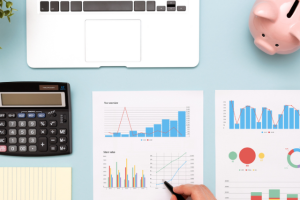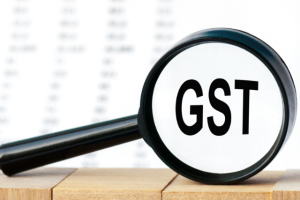Maintaining accurate financial records and implementing effective bookkeeping processes is...
Read More
We are now in the last stretch of the financial years, so no better time to make sure your business financial records are up to date.
The Australian financial years runs from 1st of July to 30th June and if you are submitting your own tax return you need to do so by 31st October.
If you are a sole trader here are some things, you can do to prepare for tax time:
Record all business income received
Make sure all business income is recorded. This includes sales paid for in cash or into your personal bank account, interest earned from the business bank account.
During the last year some business received Covid grants that are taxable income, and these also needs to be declared as an income.
As a sole trader, when lodging tax return you also report other income earned during the financial year that was not part of the business income, this may include: Salary earned as an employee, interest income, share and dividends, Cryptocurrency, rental income.
Record all business expenses
Make sure all business expenses are recorded including expenses paid for from personal bank account, PayPal, cash.
Business expenses you can claim as deductions depends on your business structure and nature.
List of potential deductible business expenses
Here are some examples for potential deductible business expenses:
- Accounting fees (tax agent, accountant, and bookkeeper fees, accounting software subscription fees)
- Advertising and marketing
- Bank fees and charges
- Computer / laptop (business portion only, to be depreciated over the item useful life)
- costs for running a website
- Education and technical or professional qualification related directly to earning an income
- Equipment
- Gifts and donations to organisations that have a deductible gift recipient status
- Home office (occupancy method / working from home fixed rate method)
- Insurance premiums
- Internet & phone service provider fees (business portion only)
- legal expenses
- Motor vehicle (Logbook method / cents per km method)
- Office expenses including stationery
- Parking fees (but not parking fines)
- Purchases of trading stock, including delivery charges
- Subscription costs for business or professional journals, information services, newspapers and magazines
- Subscription fees to trade, business or professional associations
3 Golden rules to claiming business expenses
- You must have spent the money yourself (and not being reimbursed)
- The expense must be directly related to earning your income
- You must have a record to prove the purchase
What records you need to keep for deductible business expenses
It is important to keep all invoices / receipts for expenses you wish to claim as a business deduction.
- Records are to be kept for 5 years from lodging tax return.
- Records must be in English.
- Hard copy or electronic copy are acceptable.
Personal super contribution
As a sole trader you can make personal superannuation contribution to be claimed as tax deductions.
- From 1st July 2021, the super contribution cap is $27,500 for all individuals (this includes both personal contribution and superannuation paid by employers)
- Check with your super fund the last day to receive personal super contribution
- Make the payment
- Submit ‘Notice of intent to claim a tax deduction for personal super contributions’ form to your super fund
- The super fund will send you confirmation for the personal contribution. This letter should be kept as evidence.
Gifts and donations
There is now better time to help a good cause while making a tax-deductible donation.
- The recipient of the donations must be registered as deductible gift recipient (DGR)
- You have not received anything in return. For example, purchase of home lottery ticket is not tax deductible.
- Donations needs to be over $2
- Keep tax invoice / receipt
Assets and Inventory Records
Your tax agent will require a list of all the business assets and inventory to calculate assets depreciation and prepare your tax return.
- Have a look at your assets list to make sure all business assets are registered. This includes purchase date and amount.
If you are using an accounting software, this information can be found in the balance sheet. - Make a stocktake to check your inventory is up to date.
In summary
Your tax agent is the professional provider who can advise you on all matters relating to your tax return.
These are all good practices when running a business and will help you save time and money in the long run.
Related articles
GST basics for Australian businesses
This article aims to provide you with a fundamental understanding...
Read More
